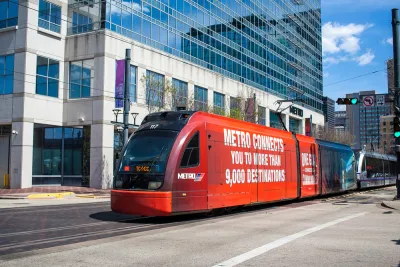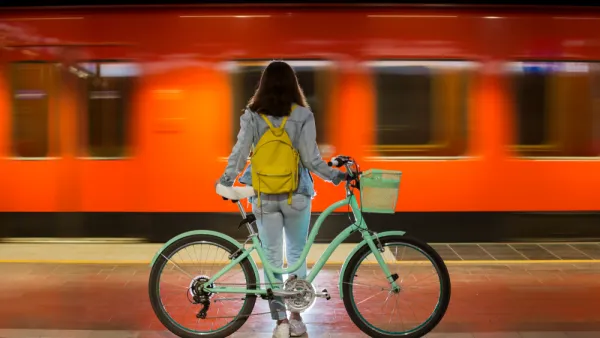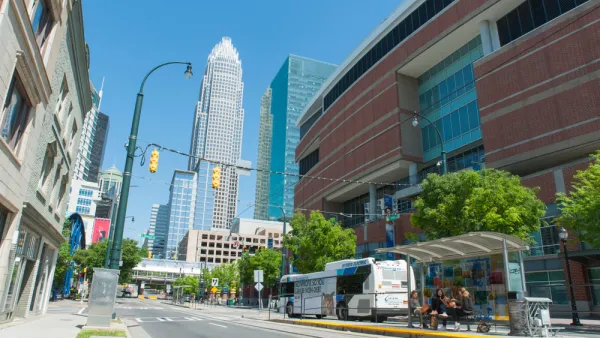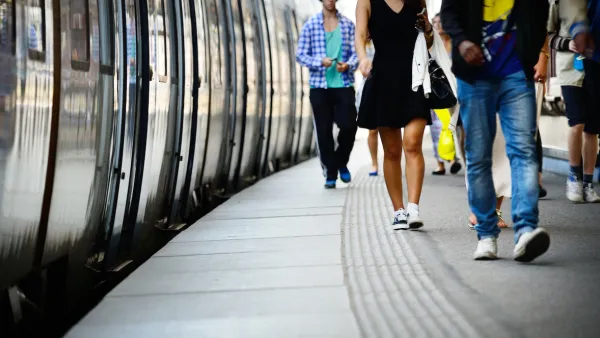The city is investing more in biking, walking, and public transit, but a lack of funding and counterproductive moves from the Texas Department of Transportation are slowing the process of shifting away from personal automobile dependency.

“Although highway expansion continues in the region and driving remains the primary mode of transportation for most Houston-area residents, the city continues to inch away from its reliance on personal cars and trucks while expanding its infrastructure for cyclists, pedestrians and mass transit users,” writes Adam Zuvanich for Houston Public Media.
“The city recently was awarded a $21 million federal grant for a transformative project on a 3-mile stretch of Telephone Road in the southeast part of town, where vehicle lanes will be reduced while bike lanes, wider sidewalks and improved connections with METRO – the region's public transit provider – will be added.” Similar projects are in the works across the city, which has added 400 miles of bike lanes since 2017.
Zuvanich notes that regional governments, such as Harris County and the Houston-Galveston Area Council, have also increased support for multimodality. “The shift is in the interest of increased safety – there were more than 300 traffic-related fatalities and 1,600 serious injuries in 2021, according to Fields – and reducing the region's carbon footprint.” Local boosters say that multimodal transportation options will also help the city stay competitive and spur economic development.
However, Houston still lacks robust investment in non-driving modes. “For example, Houston has a budget of more than $5.7 billion for this fiscal year and the Houston Bike Plan allocates a little more than $1 million annually for bike-related projects,” Zuvanich writes. Meanwhile, the state’s department of transportation continues to push freeway widening and expansion projects, despite local opposition, digging the city into a deeper hole when it comes to car dependency, according to advocates like Harrison Humphreys, the climate programs manager at nonprofit Air Alliance Houston. “We're digging out of it with a spoon, and TxDOT's got an excavator digging the hole deeper.”
FULL STORY: Houston inching away from car-centric reputation with slate of multimodal infrastructure projects

Analysis: Cybertruck Fatality Rate Far Exceeds That of Ford Pinto
The Tesla Cybertruck was recalled seven times last year.

National Parks Layoffs Will Cause Communities to Lose Billions
Thousands of essential park workers were laid off this week, just before the busy spring break season.

Retro-silient?: America’s First “Eco-burb,” The Woodlands Turns 50
A master-planned community north of Houston offers lessons on green infrastructure and resilient design, but falls short of its founder’s lofty affordability and walkability goals.

Test News Post 1
This is a summary

Analysis: Cybertruck Fatality Rate Far Exceeds That of Ford Pinto
The Tesla Cybertruck was recalled seven times last year.

Test News Headline 46
Test for the image on the front page.
Urban Design for Planners 1: Software Tools
This six-course series explores essential urban design concepts using open source software and equips planners with the tools they need to participate fully in the urban design process.
Planning for Universal Design
Learn the tools for implementing Universal Design in planning regulations.
EMC Planning Group, Inc.
Planetizen
Planetizen
Mpact (formerly Rail~Volution)
Great Falls Development Authority, Inc.
HUDs Office of Policy Development and Research
NYU Wagner Graduate School of Public Service




























